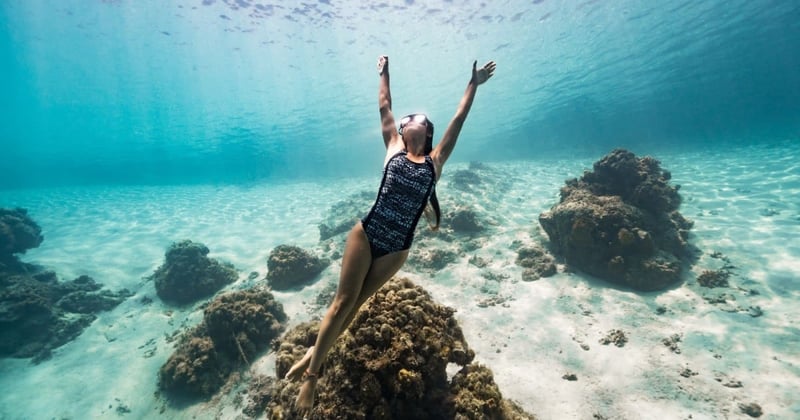
How lost fishing nets are being transformed into sustainable fashion
News
If the global climate strikes of 2019 taught us anything, it’s that consumers care more about the environment than ever before. For the fashion industry, this means ethical and sustainable clothing isn’t just an option, it’s a necessity.
This has led to the emergence of new approaches to creating fashion products that focus on upcycling, recycling, reselling, and even renting! This World Oceans Day (June 8) we wanted to share our favourite sustainable business model - recycling ghost fishing gear to create a fibre called ‘Econyl'.
Ghost gear is the term used to describe lost and abandoned fishing gear. Because fishing nets are made from materials such as nylon, which don’t break down, the gear continues to float in the ocean, trapping marine life.
Not only is Econyl made of 100 per cent waste material - it can be recycled an infinite number of times without any loss in quality. First created in 2011 by nylon manufacturer Aquafil, Econyl has recently started making waves in the high-end fashion industry. Prada and Burberry both now have Econyl ranges that cover handbags and clothing.
But, the repurposing of ghost nets is not limited to high end brands. It’s become a popular source of fabric for both swimwear and activewear. Girlfriend Collective, an ethical activewear company, uses recycled materials including both ghosts nets and plastic bottles to create high-quality and sustainable pieces. Several swimwear brands such as Fourth Element and Speedo have also released product lines featuring Econyl yarn.
Helping raise the profile of Econyl is the Global Ghost Gear Initiative. Founded by World Animal Protection, the Initiative is a multi-stakeholder alliance working to drive economically viable and sustainable solutions to the problem of ghost fishing gear. This includes raising awareness of the issue, creating processes for people to report discarded fishing gear and providing assistance and training to rescue teams around the world to save entangled marine animals.
As more consumers move away from “fast fashion”, the fashion industry is feeling the pressure to evolve, and the use of Econyl is just one example of the eco-friendly practices we’ll see more of in the years to come. Show your support for brands using Econyl, and hopefully more brands will jump on board!
Around 36,000 sea creatures such as seals, sea lions and whales are killed every year from ghost nets.